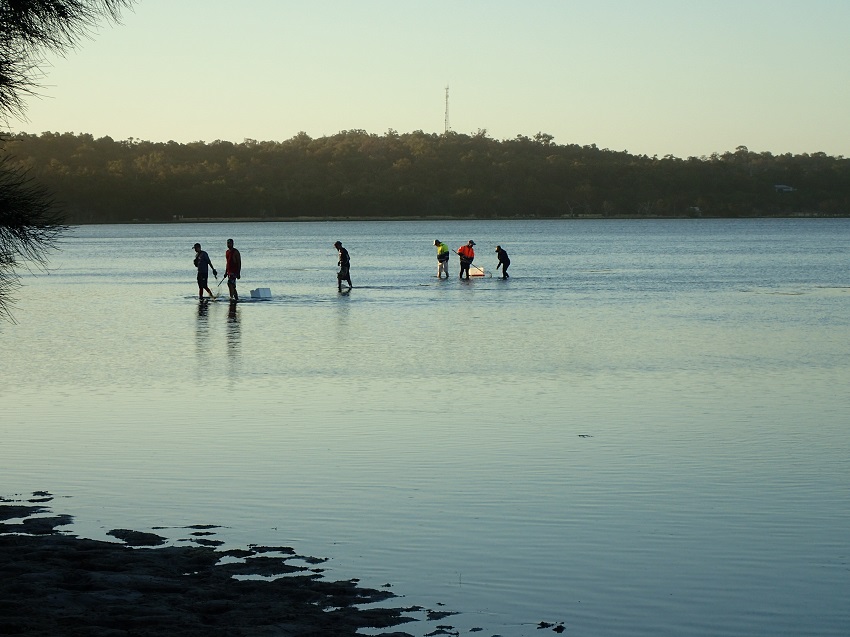
The presence of the toxic algae Alexandrium in the Swan River during recent crabbing seasons serves as a reminder to keen crabbers to prepare and clean their catch safely.
The blue swimmer crab fishing season opens in Perth and the South West today (1 December), with recreational fishers cautioned to remove the head, guts (mustard) and gills from blue swimmer crabs caught in the Swan and Canning rivers before freezing, cooking or eating them.
Mussels collected from the rivers should not be eaten at any time.
Alexandrium algae can produce Paralytic Shellfish Toxins (PSTs) which can accumulate in crustaceans and mussels. Eating affected blue swimmer crabs and mussels may be dangerous and, in extreme cases, fatal.
The Department of Primary Industries and Regional Development (DPIRD) is working with the Department of Biodiversity, Conservation and Attractions (DBCA) to educate recreational fishers and the public about the potential danger.
DPIRD senior management officer Marion Massam said while weekly water testing has indicated there are currently no Alexandrium blooms in the Swan and Canning rivers, crabbers should take precautions to keep themselves safe.
“Harmful algae caution signs have been installed at popular jetties, boat ramps and fishing locations,” Ms Massam said.
“It is so important for recreational fishers to get into the habit of removing the head, guts and gills from crabs before cooking or freezing in order to avoid toxin that can accumulate in these parts of crabs.
“Cooking whole crabs could potentially spread the toxin from crab guts into the flesh or broth and freezing crabs with guts still in place could result in PSTs spreading to the flesh during thawing.
“Comprehensive instructions on how to properly clean blue swimmer crabs are available in a flyer and video to assist recreational fishers and the public.”
Ms Massam said the department would be collecting blue swimmer crabs for testing during the season and DBCA would continue to monitor water quality in the Swan Canning estuary every week.
“These actions will inform the Alexandrium management response in the coming months.”
The brochure and video on how to clean blue swimmer crabs are available on the department’s website www.fish.wa.gov.au
For further information on Alexandrium refer to the FAQs and relevant media articles provided on the www.fish.wa.gov.au/alerts and www.dbca.wa.gov.au/algal-bloom websites.
Photo caption: Blue swimmer crabbing season begins today, 1 December.
Media contact:
Ashely Malone/Donna Coleman, media liaison, +61 (0)8 9363 4018


